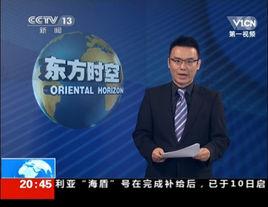中文摘要
1993年中央電視台推出《東方時空》欄目,拉開了中國電視新聞改革的序幕。年輕的電視從業者們以紀實主義為指引,開始嘗試突破以往的宣傳話語,用新的電視節目形態傳達新的理念。《東方時空》的三個子欄目——《生活空間》、《東方之子》、《焦點時刻》分別成為觀察紀實、談話紀實、報導紀實三種節目形態的發展源頭,這三種節目形態是建構電視啟蒙話語的三種策略,分別體現了人文關懷、思想多元和社會批判三種理念。此後,《焦點訪談》(1994年)、《實話實說》(1996年)、《新聞調查》(1996年)等多個有影響力的電視專題欄目相繼誕生。“關注人”、“尊重”、“平等”,成為這...>> 詳細
1993年中央電視台推出《東方時空》欄目,拉開了中國電視新聞改革的序幕。年輕的電視從業者們以紀實主義為指引,開始嘗試突破以往的宣傳話語,用新的電視節目形態傳達新的理念。《東方時空》的三個子欄目——《生活空間》、《東方之子》、《焦點時刻》分別成為觀察紀實、談話紀實、報導紀實三種節目形態的發展源頭,這三種節目形態是建構電視啟蒙話語的三種策略,分別體現了人文關懷、思想多元和社會批判三種理念。此後,《焦點訪談》(1994年)、《實話實說》(1996年)、《新聞調查》(1996年)等多個有影響力的電視專題欄目相繼誕生。“關注人”、“尊重”、“平等”,成為這些欄目創業者的共識,從而形成了1990年代獨特的電視啟蒙話語。
進入新世紀,電視媒體面臨的是更加多元的媒介生態環境和更加專業化的發展趨勢。隨著新聞頻道的建立和崛起,及時快速、碎片化的滾動新聞以及對重大突發事件的直播報導成為電視新聞專業化浪潮的發展方向。在這種順理成章的轉型過程中,1990年代建構起來的電視啟蒙話語日漸衰落了。近二十年間,觀察紀實、談話紀實、報導紀實這三支脈絡經歷了各自的興衰起伏,它們的發展、演變、消亡從一個側面反映了中國電視話語中的權力關係變革。
本文嘗試將話語分析的研究方法引入新聞生產研究之中,以“話語、權力、主體”為研究架構,試分析1990年代電視新聞改革構建起來的啟蒙話語是如何走向衰落的;話語變遷背後隱藏的是怎樣的權力關係變革;這些變化對於新聞評論部從業主體產生了怎樣的影響。
需要說明的是,對電視新聞話語建構的分析並不是要證明某種建構的正誤,或者說明其合理性,而是要揭示話語建構變化的背後各種社會條件、權力關係的變化,以及更為重要的是分析新聞實踐變化過程中,從業主體如何將這種話語建構進行貫徹,他們自身又發生了什麼樣的變化。
關鍵字:電視評論節目、紀實、啟蒙、話語
外文摘要
In 1993, CCTV launched the column named "Oriental Horizon", which was seen as the start of the China''s TV News reform. Using documentary as a tool, the young television practitioners tried to break the propaganda discourse and use the new form of television programs to convey their new ideas. After then, "In Focus" (1994), "Tell as it is" (1996), "News Probe" (1996), more influential TV Columns have been born. "Concern of individual", "respect" and "equality" has become the consensus of the p...>> 詳細
In 1993, CCTV launched the column named "Oriental Horizon", which was seen as the start of the China''s TV News reform. Using documentary as a tool, the young television practitioners tried to break the propaganda discourse and use the new form of television programs to convey their new ideas. After then, "In Focus" (1994), "Tell as it is" (1996), "News Probe" (1996), more influential TV Columns have been born. "Concern of individual", "respect" and "equality" has become the consensus of the practitioners of these columns, which formed a special television enlightenment discourse in the 1990s.
Three sub-part of the "Oriental Horizon"-"Living Space", "Eastar", "Focus Time" became the source of observation documentary, conversation documentary and report documentary. This three program forms are the three strategies that constructed TV enlightenment discourse, which represent the philosophy of humanities, thoughts and criticism. In the new century, television Enlightenment discourse declined, replaced by the rise of the news channels. Timely reports and live repot are the trend of TV news. Nearly two decades, this three forms experienced of their respective fate, their development, evolution, and demise is a reflection of the transformation of power relations in the television discourse.
The framework of this paper is according to " Discourse, Power, and Subject". It attempts to analyze how did the TV enlightenment discourse build up in the 1990s, and how did it decline; How did the power relations change behind the changes of discourse; How did these changes impact the practitioners of CCTV News In-depth Reporting Department. It should be noted that the discourse analysis of television news is not to prove the correctness or its rationality of some kind of construction, but to reveal the changes in a variety of social conditions, changes in power relations behind the discourse constructed, and more important is to analyze how do the practitioners perform in the discourse construction, what kind of changes have happened to themselves.
Keywords: Television in-depth Reporting, Documentary, Enlightenment, Discourse

